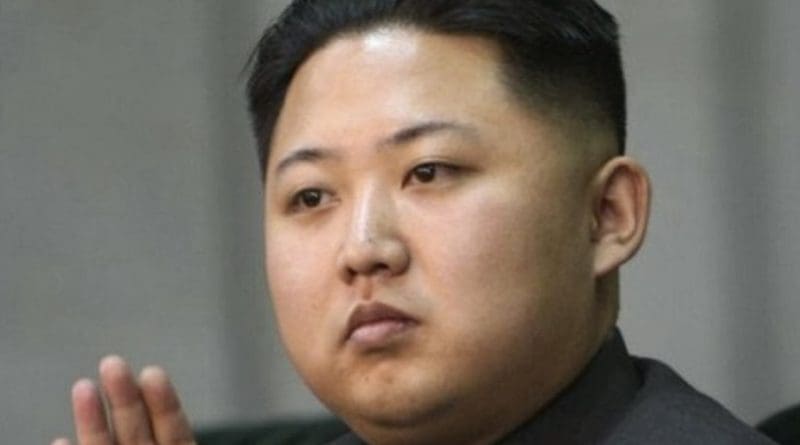North Korea’s Nuclear Test: A Reflection Of Multiple Failures? – Analysis
By Observer Research Foundation
By Rajeswari Pillai Rajagopalan
North Korea conducted its fifth nuclear test Friday morning at 9.00 am local time in yet another defiance of UN resolutions. The South Korean government reported that this was possibly the biggest explosion so far and it appears that Pyongyang is beginning to make serious nuclear advances. South Korean President Park Guen-hye termed the test an act of “self destruction“; the US issued a warning of “serious consequences.” Japanese Prime Minister Shinzo Abe reacted to the test saying it “absolutely cannot condone” the test and would “protest adamantly” to North Korea. He added that Pyongyang’s “nuclear development is becoming a graver threat to Japan’s safety and severely undermines the peace and safety of the region and the international community.” China too called upon the North Korean’s regime to exercise restraint and avoid further action, though it appeared to justify Pyongyang’s action by suggesting that it was possibly a response to the deployment of the US anti-missile defence system THAAD. Yukiya Amano, head of the International Atomic Energy Agency too stated that test was in violation of UN Security Council resolutions and that it is “a deeply troubling and regrettable act.”
Given the nature of the regime in North Korea, there is no clear information on the kind of yield, the type of weapon, among other things. South Korea reported that it may be a 10 kt (Kiloton, or the explosive equivalent one ton of TNT) weapon although others have suggested that it may be a 20 kt. Just to offer a sense of the magnitude of the yield, the bomb that the US dropped in Hiroshima was 15 kt. But the yield suggests that this was not a hydrogen or a fusion bomb.
The test might also indicate North Korea’s success in miniaturising their weapon to mount it on top of a long-range ballistic missile. North Korea claimed this after their last nuclear test in January. US military officials also suggest that Pyongyang may have managed to miniaturise the warhead though US civilian officials appear to be more skeptical. It must also be added that North Korea has carried out a series of ballistic missile tests as well in the recent months, the most recent one in the beginning of the week as world leaders gathered in Hanzhou for the G20 Summit.
What motivates the North Korean regime is of course the key question. Ever since Kim Jong-un took charge in Pyongyang, one has seen a much more belligerent North Korea. No amount of UN sanctions seemed to have had any impact on the regime. So how can the world respond to today’s test? North Korea is already isolated, especially after the tough sanctions imposed on Pyongyang after the January 2016 nuclear test. What more can be done to isolate an already isolated regime? One can debate additional means to put pressure on the regime, but it is more important to ensure that existing sanctions are fully implemented. This brings to particular focus the role of China. Has China been on board in implementing the last round of sanctions? China remains the only country that has offered political and economic support to the regime. It is understandable that Beijing does not want to see the North Korean collapsing, which would mean that the power vacuum could possibly be filled by South Korea or even the US.
This test also affects Asian security dynamics. There have been continuing debates within South Korea and Japan on whether they should develop their own nuclear weapons. Japan’s debate is particularly noteworthy. Given the strong domestic opposition to nuclear weapons, the fact that these debates are taking place at all says a lot about the new security dynamics in play. Tokyo has all the technological wherewithal to build nuclear weapons but the question has been about its willingness to go down this path given its strategic culture and how it might upon Japan-US security equations. Clearly, on the first question, the indication that the rest of the world will not do much to control North Korean nuclear weapons is increasing support for a Japanese nuclear arsenal, though this is, as yet, by nowhere near the majority opinion. But unless the rest of the world does something about North Korea, Japanese domestic opinion could continue to swing towards exercising its own nuclear option.
The second issue is about US support. There has always been also the question of the credibility of the US nuclear umbrella. The recent talk of a US No First Use (NFU) policy triggered fresh debates in this regard. The US debate on the NFU has been shelved for the time being but the need for independent security capabilities is not going to go away, at least in the minds of US allies. Japan has also worried about a possible Iran-like solutions worked out sometime in the future between the US and China, which leaves North Korean nuclear capability in place, leaving Tokyo to fend for itself. But should Japan go nuclear, South Korea will follow suit and the situation would become rather dire.
Lastly, the North Korean nuclear belligerence is also a reflection of the lack of effectiveness of the global non-proliferation regime. NPT has been in a crisis mode and the failure to tackle cases such as North Korea either through the non-proliferation regime or by the great powers will leave the neighbouring countries to fend for themselves.

